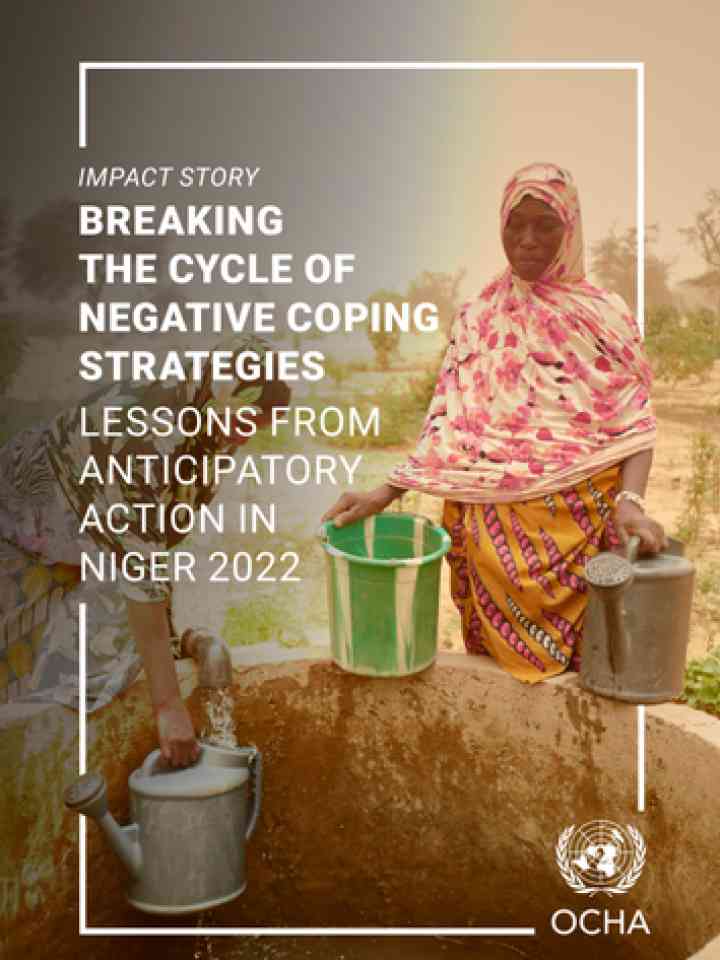Impact story: Breaking the cycle of negative coping strategies - Lessons from anticipatory action in Niger 2022
When people have few resources to cope with incessant droughts, they become trapped in negative cycles. People in Niger resort to these cyclical negative coping strategies year after year. But in 2022, the pilot of an anticipatory action framework demonstrated this does not have to be the case. Acting early – before people experienced the drought’s full impact – enabled them to preserve land, save livestock and avoid negative coping strategies.
Highlights
- In Niger, persistent droughts and floods compounded by conflict and insecurity are driving humanitarian needs;
- Year after year, communities are forced to resort to negative coping strategies as they have few resources to cope with recurrent droughts;
- In 2022, OCHA and partners established an anticipatory action framework in Niger to get ahead of droughts and reduce their impact on vulnerable communities;
- The framework was activated in August 2022, and the Central Emergency Response Fund (CERF) released US$9.5 million to reduce the drought’s impact on more than 160,000 people. This was months earlier than a traditional CERF rapid response allocation for droughts;
- Acting before people experienced the drought’s full impact prevented them from resorting to negative coping strategies;
- Anticipatory interventions, such as cash-for-work programmes, education grants and cash, gave households timely income and support, preventing them from pulling children out of school or migrating for work;
- The pilot demonstrated the added value of observational triggers for anticipatory action in drought contexts;
- It also taught valuable lessons in how to improve the impact of anticipatory action.
Explore further
